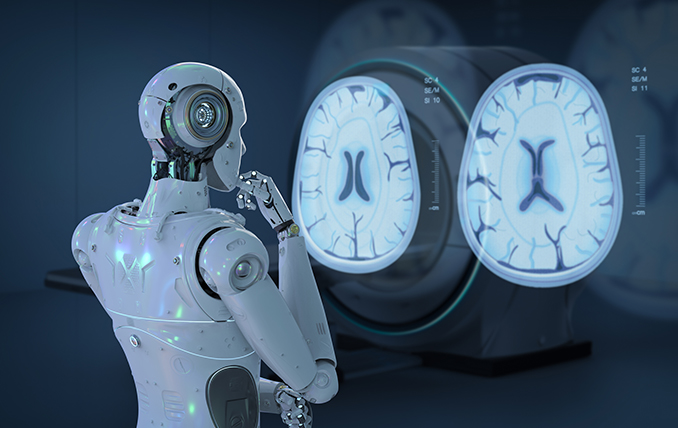
AI’s Leap into the Healthcare Realm: Transforming Diagnostics and TreatmentAI’s Leap into the Healthcare Realm: Transforming Diagnostics and Treatment The advent of artificial intelligence (AI) has profoundly impacted various industries, and healthcare is no exception. AI’s capabilities empower it to analyze vast amounts of data, discover patterns, and make predictions, revolutionizing the way medical professionals diagnose diseases and administer treatments. Advanced Diagnostics AI algorithms can scour through patient data stored in electronic health records, medical images, and genetic information to identify early signs of diseases. These algorithms learn from the patterns present in vast datasets, enabling them to detect anomalies that may be missed by human examination. AI-powered diagnostic tools assist healthcare providers in: * Identifying early-stage cancers with higher accuracy and efficiency * Predicting the risk of cardiovascular events and strokes * Detecting hidden patterns in medical images, such as CT scans and MRIs Personalized Treatment Plans AI algorithms can customize treatment plans tailored to the specific characteristics and needs of each patient. By considering genetic makeup, lifestyle factors, and medical history, AI models can predict the likelihood of treatment success and identify potential adverse reactions. This personalized approach enhances the effectiveness of treatments and minimizes potential side effects. * Optimizing drug dosage and treatment schedules for chemotherapy and radiation therapy * Identifying patients at high risk of developing post-operative complications * Predicting the success rate of fertility treatments Empowering Medical Professionals AI serves as a valuable assistant to medical professionals, enhancing their decision-making capabilities. AI-powered tools provide real-time insights, alerts, and recommendations, enabling healthcare providers to: * Prioritize high-risk patients for early intervention * Make informed treatment choices based on the latest research and best practices * Avoid medical errors and reduce patient harm Future Prospects The integration of AI into healthcare promises even more transformative advancements: * Autonomous Surgery: AI-driven robotic systems will assist surgeons in performing complex operations with greater precision and accuracy. * Early Detection and Prevention: AI algorithms will analyze genetic information to identify individuals at risk of developing certain diseases, enabling preventive measures to be taken. * Virtual Health Assistants: AI-powered chatbots and virtual assistants will provide patients with 24/7 support, triage symptoms, and connect them with appropriate healthcare resources. Conclusion AI’s leap into the healthcare realm represents a transformative shift in the way medical professionals diagnose and treat diseases. By empowering healthcare providers with advanced tools, optimizing treatment plans, and improving patient outcomes, AI is revolutionizing the delivery of healthcare. As the technology continues to evolve, we can anticipate even more groundbreaking advancements that will redefine the future of medicine and improve the lives of countless patients.
Posted inNews